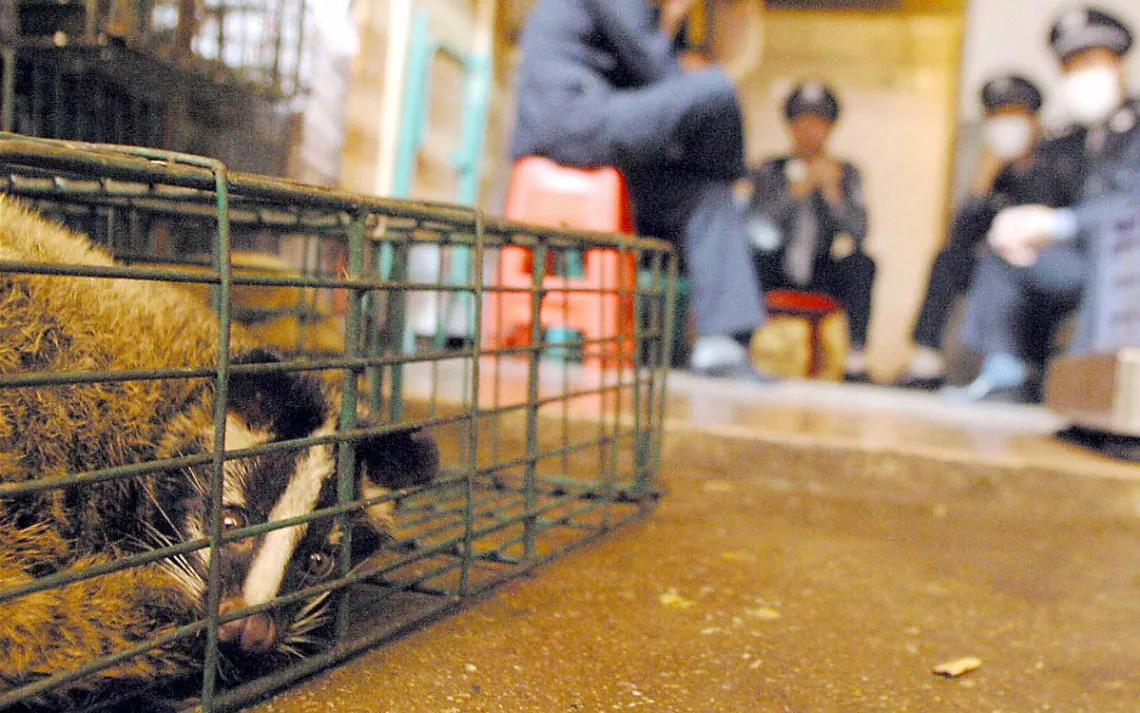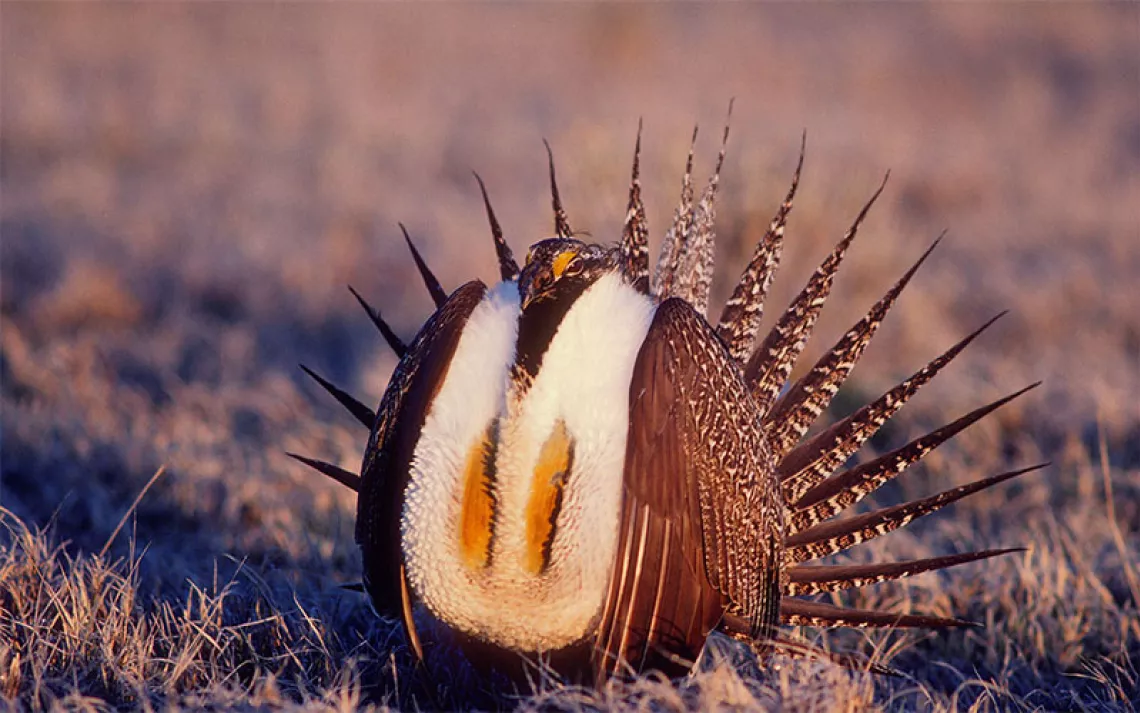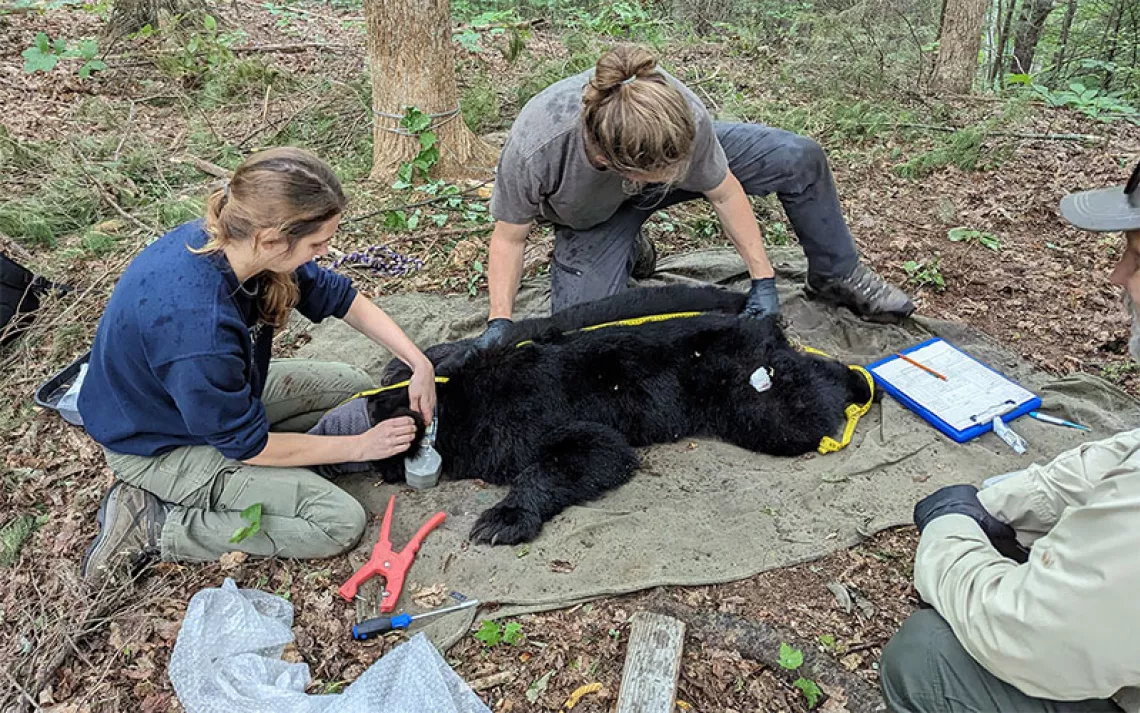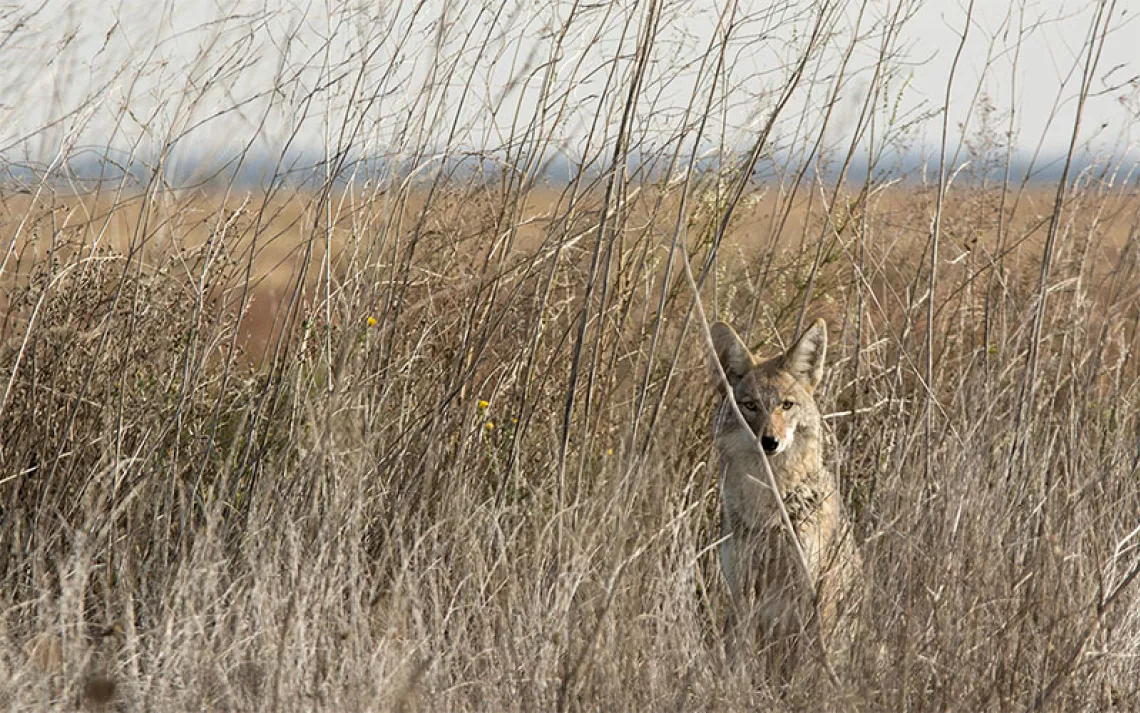China Could End the Global Trade in Wildlife
The coronavirus pandemic has highlighted the dangers of the wildlife trade

A civet confiscated by Chinese police and health officials from a wildlife market in Guangzhou after the animals were linked to an outbreak of the coronavirus SARS in 2004. | Photo by AFP/Stringer
The coronavirus that causes COVID-19 is—by far—the most devastating such virus in modern history. But it is only the latest novel disease that is linked to trade in wildlife. And unless we significantly change our behavior and relationship to wildlife, COVID-19 will not be the last pandemic caused by a zoonotic disease.
Experts have been warning for decades about the health dangers posed by both legal and illegal wildlife trade. Now, some governments are finally listening. China has taken concrete steps to shutter much of its wildlife trade, and Vietnam is tightening its legislation as well. Experts hope that China and Vietnam, leading by example, will prompt other governments to do the same.
“What China is doing is very, very encouraging, in that they’re potentially taking a lead globally on policy to prevent future outbreaks,” says Scott Roberton, director of counter-wildlife trafficking for the Wildlife Conservation Society’s Asia program. “This isn’t about conservation; it’s about public health.”
Scientists tracked the COVID-19 outbreak to a meat market in Wuhan, China, that sold dozens of exotic species. Thirty-one of the 33 samples taken at the market that tested positive for the virus originated in the area that housed wildlife. Livestock are not believed to have played a role in COVID-19’s emergence or transmission.
Past coronaviruses, including SARS and MERS, originated in bats, and COVID-19 is a 96.3 percent match to a virus found in horseshoe bats in Southeast China. It is even more similar to a virus discovered in 2019 in pangolins—the world’s most highly trafficked mammal, sought after in China and Vietnam for their scales and meat. For now, though, neither pangolins nor any other species have been determined to be intermediary hosts in the outbreak. “Many scientists are working fiercely on filling in these unknowns,” says Alonso Aguirre, a wildlife disease ecologist at George Mason University.
In February, China made the unprecedented decision to issue a nationwide ban on all terrestrial wild animal commerce and consumption, including exotic species raised on farms. Significant revisions are now being considered to a number of laws, from conservation to animal epidemic prevention. Officials are also developing a new biosecurity law. “China is working on a whole set of actions to address this issue from different angles,” says Aili Kang, executive director of the Wildlife Conservation Society’s Asia program.
If China does permanently ban wildlife trade, she continues, the benefits for both public health and conservation could be immense. “I’m Chinese, so I don’t want to be the center of the problem, but China has a population of more than 1.3 billion,” she says. “Even if it’s only 1 percent of the population consuming wildlife, it’s still a big consumption.”
So far, China is not considering banning exotic pets or wildlife used for traditional medicine or fur. Some turtles and amphibians that are classified by the government as aquatic species also fall outside the scope of the proposed protections. That’s concerning, Roberton says, because the same dangerous conditions that contribute to disease emergence in wild animals traded for meat are also present in supply chains for those traded for other purposes. “Focusing on the end use is the wrong way to approach it,” he says. Banning wildlife for some uses but not others also adds an additional layer of complexity for law enforcement, he says.
Kang emphasizes, though, that banning all consumption of mammals and birds—the species most likely to be vectors for disease—plus most reptiles is still a strong start. “We’re talking about a habit China has had for many, many years,” she says. “Now the central government is saying stop it, which is an important signal for social change.”
Wildlife trade is not just a Chinese issue, however. Many of the animals found in China’s markets are sourced from other countries—including Vietnam, Indonesia, Thailand, Laos, and Cambodia—which also have high levels of legal and illegal wildlife trade and consumption themselves.
The reactions of Southeast Asian governments to the pandemic and its connection to wildlife trade have thus far been mixed. After China, Vietnam has taken the strongest steps. In March, in response to a letter sent by 14 local and international conservation groups, Prime Minister Nguyen Xuan Phuc instructed the Ministry of Agriculture and Rural Development to draft a directive, due by April 1, banning domestic wildlife trade and consumption.
While there is room for improvement, Vietnam’s existing wildlife legislation is already quite strong, says Ha Bui, director of law and policies at Education for Nature-Vietnam, a nonprofit conservation group in Hanoi. “We basically have the law now,” she says. Yet Vietnam remains a hub for illegal trade because of high demand for wildlife paired with a lack of enforcement. Many police officers, Bui says, don’t consider wildlife crime as a serious issue. “They have sympathy for people trading wildlife,” she says. “They don’t see the direct link between wildlife trade and their health and lives.”
Now that that link has been irrefutably established by the pandemic, she believes that wildlife law enforcement will become much stronger. There are signs this may already be happening. For years, for example, local authorities ignored reports from Bui and her colleagues about a market in Long An province selling illegal wildlife products. In mid-March, they finally held a raid, seizing over 400 animals, including migratory birds, otters, tortoises, owls, and gibbons. Bui credits the raid to COVID-19.
Meanwhile, Roberton has seen a few enterprising Vietnamese wildlife criminals touting rhino horn as a coronavirus cure and advertising face masks and hazmat suits alongside illegal animal products online. “It’s very hard to know if illegal wildlife trade is increasing or decreasing, but it definitely hasn’t totally stopped,” he says.
The response from other countries is less encouraging. In February, Indonesia, another major hub for legal and illegal wildlife trade, banned the import of most animals from China. The government has so far kept domestic wildlife markets open, however, claiming they are safe because they sell animals meant to be pets, not meat. But pet markets house the same cornucopia of virus-carrying species—including bats, civets, rodents, and birds—and the animals are kept in the same stressful, unhygienic conditions as markets where they’re sold for meat. Some creatures, including fruit bats, snakes, and squirrels, are slaughtered on the spot for medicinal purposes.
“The markets where these animals are openly offered for sale in Indonesia are as open now as they have ever been,” says Vincent Nijman, a conservation biologist at Oxford Brookes University. “From an emerging disease perspective, these markets present the perfect venues for transmission.”
While Asia is a center of demand for wild animals and their parts, Kang adds, “the rest of the world should not ignore this global challenge.” Many other countries, including in Africa and South America, also engage in commercial-scale wildlife trade and ship animals and their parts, legally and illegally, to Asia and other international destinations. For example, according to Quartz, pangolins continue to be consumed as usual in Nigeria—a hub of illegal trade for the species—despite the news that they can carry coronaviruses.
As long as wildlife continues to be traded and exploited, the world risks the emergence of another novel disease. “It’s kind of simple,” Roberton says. “If a country wants to prevent the risk of a future pandemic threat like COVID-19, and right now their country is trading and consuming wild animals, the best thing they can do is remove that trade.”
 The Magazine of The Sierra Club
The Magazine of The Sierra Club



